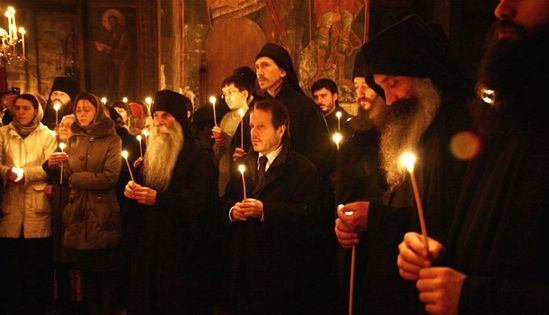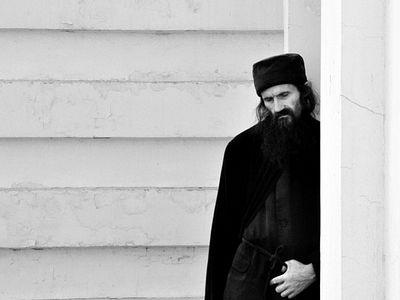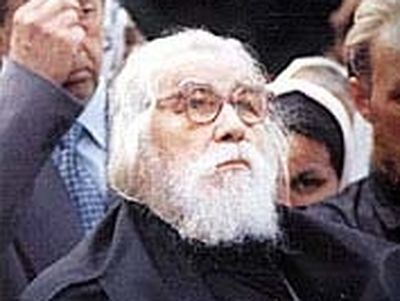
To a culture whose core values are self-fulfillment, self-satisfaction, and self-sovereignty, Orthodox monastic life appears as an affront and a scandal. What could be more contrary to our individualistic society which prizes comfort, ease, and “freedom” above all other concerns than a life of utter self-abasement, strict obedience, and striving after Holy suffering for Christ’s sake?
The monastic life is a call to prophetic, apostolic, martyric, Christian witness, but is it a completely distinct call from the general Christian calling? Do the commandments to pray unceasingly (1 Thess. 5:17) or to sell all we have, give to the poor, and follow Christ (Matt. 19:21) only apply to monks? Aren’t all Christians called to strive after simplicity and poverty? To take up our cross and suffer willingly for Christ’s sake (Matt 16:24; Luke 9:23; Mark 8:34)? To a life of humility and repentance? To cut off our own will and submit in obedience to our spiritual fathers in the Church (and therefore, to Christ and his commandments)? To fasting and prayer?
Yes.
While many Christians are called to a life of marriage in the world, the gap between this life and that of the monastic who has fled the world shouldn’t be as large as we tend to think that it is. St. John Chrysostom writes:
You greatly delude yourself and err if you think that one thing is demanded from the layman and another from the monk; since the difference between them is in that whether one is married or not, while in everything else they have the same responsibilities … Because all must rise to the same height; and what has turned the world upside down is that we think only the monk must live rigorously, while the rest are allowed to live a life of indolence
For those of us raised in modern American culture as I have described it above, these words can appear daunting. The pattern of monastic living and its standards seem so far removed from our normal modes of being in the world that we shrink at the thought that we might be called to a similar standard. Or that—heaven forbid!—we might be called to the monastic life itself.
But the gospel of Jesus Christ is and has always been an offense and scandal to the world. If Christians in America have fooled ourselves into believing the Christian calling is neatly compatible with our inherited way of life, we have been greatly deceived. The witness of the lives of monks striving to preserve the genuine apostolic, Christian life should appear to us as an oasis in a harsh and barren desert—if we are striving to see with the eyes of eternity rather than with the eyes of this world that is dying and passing away (1 John 2:17; 1 Cor. 7:31). St. Justin Popvich writes:
The supreme rule of the Orthodox philosophy of society is: we must not adapt Christ the Theanthropos to the spirit of the times, but adapt the spirit of the times to Christ’s eternity, Christ’s theanthropy.
And it is precisely the monastic life that appears as a beacon of light from this eternal perspective.
While married life in the world necessarily differs in certain respects from monastic life, we ought not think that the differences are such that life in the world is one of lenience and laxity, while the monastics are called to strictness. Both callings are a call to strictness of life, but with some necessary differences. For a Christian husband in the world his primary, daily spiritual responsibilities are love and service to his wife and children, while a monks’ commitments are to his elders and brothers (or sisters, in the case of female monastics) at the monastery. The Christian in the world has a home and possessions as are necessary for living in the world, while a monk has neither. And there are perhaps some other essential differences, but the fundamental Christian calling is the same for both.
St. Symeon the New Theologian has words that should encourage those of us in the world striving to live a genuinely Christian life:
[L]iving in the city does not hinder us from practising the commandments of God as long as we are zealous and vigilant, and solitude and retirement from the world are useless if we are slack and careless.
Simply being a monk is no guarantee of success in the Christian life anymore than living a married life in the world is a guarantee of failure. In either case we must zealously cultivate a desire to obey the commandments, for prayer, for humility etc. But we ought not delude ourselves into thinking that we are called to something that is fundamentally different from what monastics are called to. Rather, let us look to that standard with humility, recognize it as the authentic mode of apostolic Christian life, and strive to emulate it.




